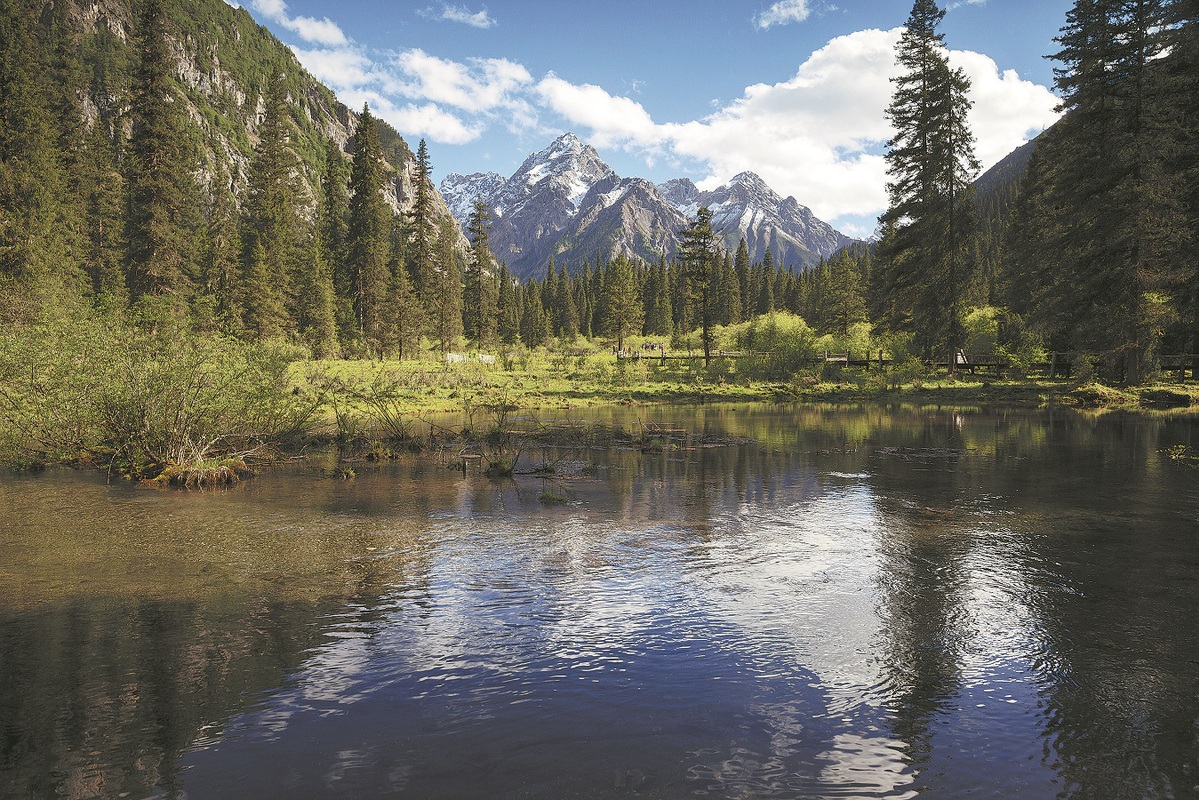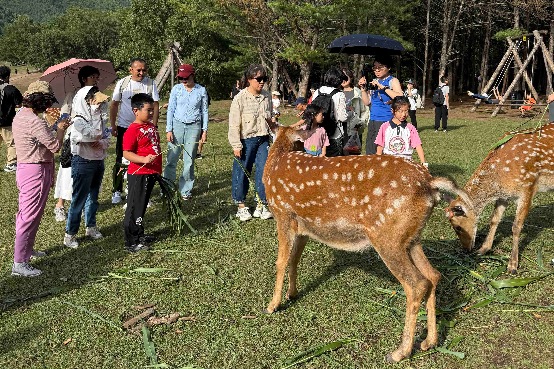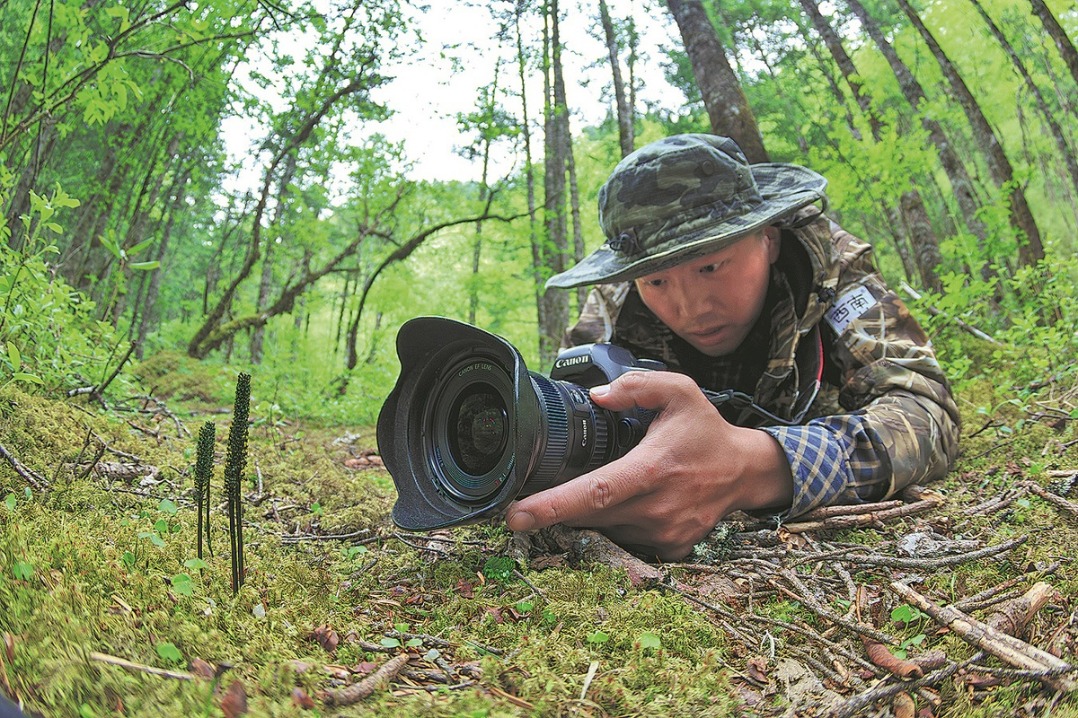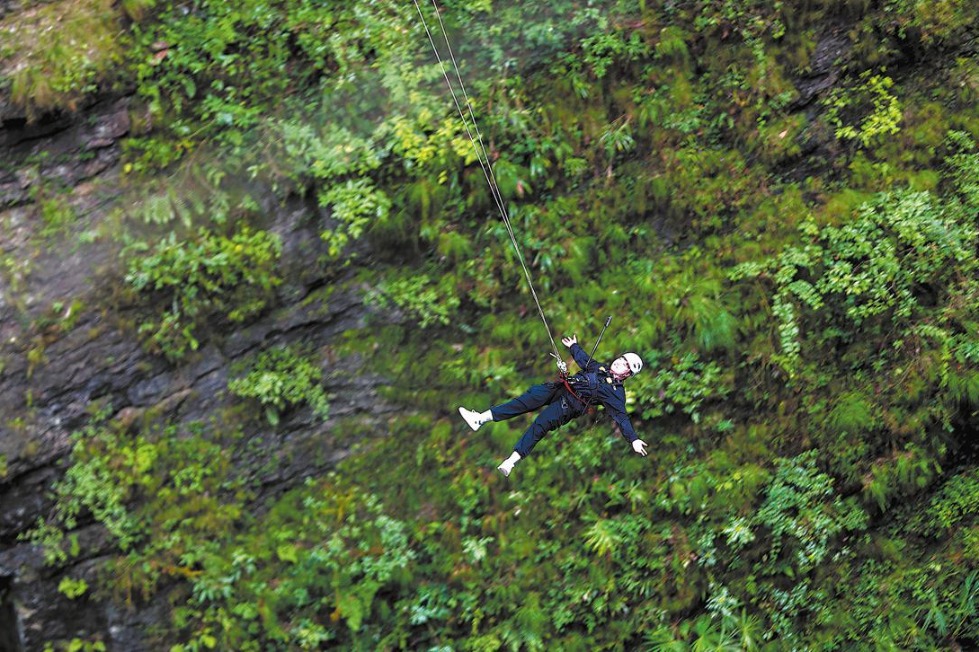Natural path to knowledge
Rangers at Sichuan's Wanglang reserve provide nature education tours in summer heat


Editor's note: As protection of the planet's flora, fauna and resources becomes increasingly important, China Daily is publishing a series of stories to illustrate the country's commitment to safeguarding the natural world.
For the over 20 rangers that patrol the Wanglang National Nature Reserve in Southwest China's Sichuan province, apart from patrolling and protecting the forest, they serve another critical function — education.
Located in the northern tip of Sichuan, Wanglang is less well known than the nearby scenic areas of Jiuzhaigou and Huanglong. But unlike those areas of spectacular natural beauty, Wanglang offers something different.
Particularly in the summer months, the reserve's rangers have a busy schedule acting as guides and educators to many tour groups, especially students on their summer breaks, teaching them about the forest, environmental protection, the local plant and animal species, and forest management.
This service sets Wanglang apart from other nature reserves, enabling it to carve out its own niche in nature education.
The 323-square-kilometer park, about the size of the island of Malta, is visited by a diverse range of people, from elementary and high school students to scholars from some of the nation's top universities, as well as families and botany enthusiasts from overseas.
Popular pioneer
"Please don't ask me if there are any rooms available. There are absolutely none, even the rooms in nearby villages are fully booked," said Zhao Lianjun, director of the Wanglang reserve, in a recent WeChat post.
The bigger-than-usual summer travel surge in Wanglang can be attributed in part to people seeking respite from the scorching heat wave sweeping through the Sichuan basin, said Zhao.
Nestled in the Minshan Mountains, the reserve is renowned for its cooler climate in the summer months, owing to its elevation ranging from over 2,000 to nearly 5,000 meters.
Despite the growing number of visitors and the income that brings, Zhao said that conservation will always remain the key focus of the reserve.
This summer, Wanglang struggled to accommodate visitors at peak times.
The Wanglang Giant Panda Camp, the sole lodgings available for tourists, can only cater to a little over 100 people. "These rooms are typically pre-booked by nature education tour groups," Zhao said.
The reserve's dormitories can accommodate 70 to 80 further people, but they are exclusively reserved for visitors from collaborating institutions. "They're primarily utilized by college students and their teachers on field internship expeditions," he said. "Also, we expect to channel most of our visitors to homestays in villages near the reserve, bringing a solid income to the local communities."
According to the reserve manager, Wanglang was one of the very first nature reserves in the country to offer nature education. Wanglang was established as a wild giant panda reserve in 1965, along with the reserves of Wolong, Baihe and Labahe.
While Wanglang may not boast the same natural spectacle as Jiuzhaigou or Huanglong, both World Heritage Sites, its long tradition of cooperating with research institutions, rich biodiversity and diverse habitats have made it a prime location for nature education.
Zhao said that the reserve has run nature education programs for more than 10 years.
"The earliest visitors to Wanglang were researchers and their students from universities and scientific institutions," he said. "They discovered an ideal research environment in Wanglang, and many have since become regular visitors."
The reserve was also among the first in China to engage in international cooperation, including scientific research initiatives with renowned conservation biologists such as George Schaller and John MacKinnon.
College students make up the vast bulk of those coming to Wanglang for nature education, Zhao said.
Over the years, the reserve has forged partnerships with more than 20 universities and institutions, including some of the nation's leading academic institutions such as Peking University in Beijing and Fudan University in Shanghai.
More than 60 undergraduate students and 30 doctoral candidates have successfully completed their research projects based on fieldwork conducted in Wanglang, Zhao said.
In June, nearly 80 students and teachers from Peking University completed their regular summer field study at the reserve, and last month, over 20 students and teachers from Fudan University stayed there for a five-day study tour, he said.
"A dozen high school students from Shanghai also joined the tour," Zhao said. "In the summer, most of the participants of our various nature education programs are students."
- Envoys hail China's panda conservation, seek wider ties
- China's national park system hailed
- Guangzhou man detained for allegedly impersonating serviceman and State Council counselor
- China eases rules on private pension withdrawals
- Rainbow covers Beijing sky after rain
- Three-day art festival of disabled?people opens in Wuhan





































